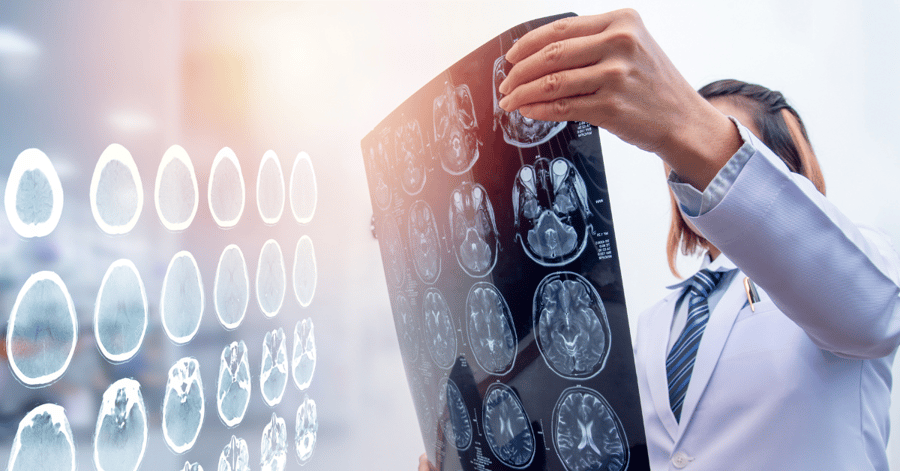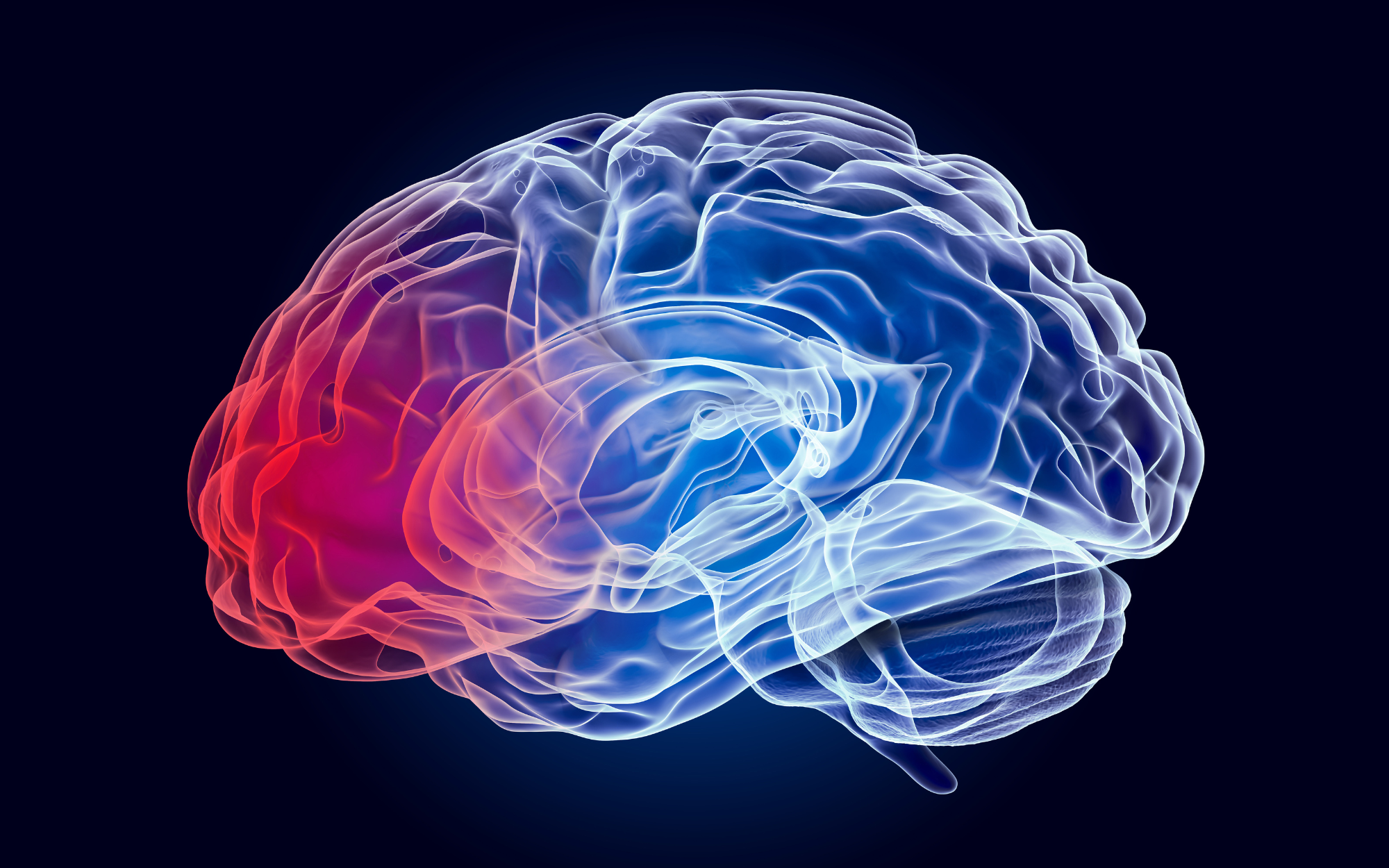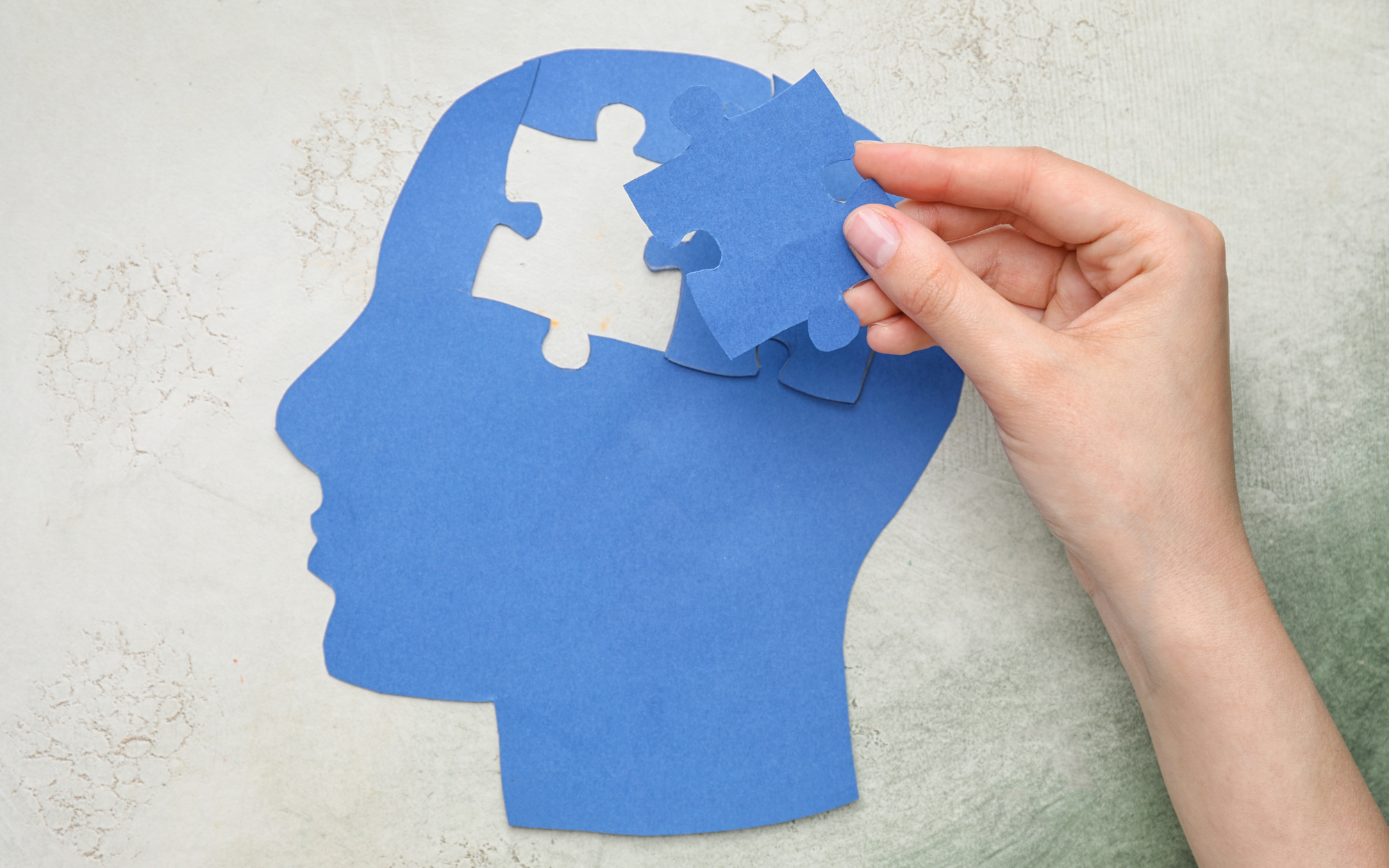AHW Grants in Wisconsin Advance Traumatic Brain Injury Diagnoses and Treatment
June 23, 2023 Posted by AHW Endowment

The human brain is an incredibly complex and powerful organ. It’s responsible for our thoughts, feelings, bodily functions, and our ability to live life as we know it. When a traumatic brain injury (TBI)–a brain injury caused by an external force–occurs, it can cause mental and physical impairments that can alter a person’s health for the rest of their lives.
Advancing a Healthier Wisconsin Endowment (AHW) grants in Wisconsin have funded various projects investigating the effects of TBIs and supporting the development of better care and rehabilitation for TBI patients.
Traumatic Brain Injuries in Wisconsin
There are as many as 9,800 nonfatal emergency department visits and 4,200 hospitalizations due to TBIs in Wisconsin each year, and nearly 1,500 deaths. While unintentional falls are the leading cause of TBI deaths and hospital visits, other causes include sports activities, motor vehicle crashes, assaults, and fire-arm-related suicide.
Anyone can experience a TBI, but there are certain groups–including racial and ethnic minorities, rural community residents, and older adults–who face a greater risk of dying or long-term health problems after suffering one. Difficulty accessing healthcare and proper follow-up care after a TBI are among the reasons individuals in these groups have a higher risk of health problems.
AHW has funded the following TBI-focused research projects to provide the best short- and long-term health outcomes for all Wisconsinites and to generate information that can benefit TBI patients here and elsewhere.
AHW Grants in Wisconsin for TBI Research Projects
Improving TBI Outcomes and Reducing Health Disparities
Everyone who experiences a TBI faces health consequences of some sort, whether headaches and thinking problems or other bodily injuries or challenges with recovery. However, some individuals experience more significant difficulties following a TBI than others. Socioeconomic factors can affect the level of care an individual receives, which in turn affects a person’s recovery trajectory.
With AHW funding, Medical College of Wisconsin (MCW) principal investigator Lindsay Nelson, PhD (Neurology) and co-investigators Stacy Young, PhD (Family Medicine), Courtney Barry, PsyD (Psychiatry and Behavioral Medicine), and Hirad Hedayat, MD (Neurosurgery), are investigating how TBI patients’ holistic experiences and personal circumstances influence their life function and quality.
At the conclusion of their two-year project, now heading into its second year, the researchers will identify actionable short- and long-term health care and community initiatives to provide better outcomes for TBI patients and reduce health disparities in our state.

Developing Evidence-Based Rehabilitation Programs for TBI Patients
Mild traumatic brain injuries (mTBIs), also known as concussions, account for 80% of all TBIs. Symptoms of mTBIs include impaired cognitive function, headaches, anxiety, irritability, fatigue, and depression. Though mTBIs are common and cause symptoms that can make it very difficult for individuals to resume everyday daily life after their injury, there are currently no well-validated treatments for them.
Without a reliable treatment plan, patients are left uncertain about how long recovery will take and what it will entail. Adding to this dilemma is a recent discovery that mTBIs are associated with cardiovascular changes in the autonomous nerve system, or ANS, the body’s system that controls essential functions.
In a research project funded by AHW grants in Wisconsin, MCW’s Lindsay Nelson, PhD (Neurosurgery), and Hershel Raff, PhD (Medicine, Endocrinology), are working to develop evidence-based rehabilitation programs for mTBI patients. The researchers are exploring how ANS mechanisms are tied to mTBI symptoms, using their findings to inform rehabilitation programs to normalize the neurophysiological response to activities.
With better rehabilitation programs for mTBIs, patients will have improved opportunities to return to life as they know it and move forward in health.
Understanding the Causes of Brain Dysfunction in TBIs
Many of the mTBIs mentioned above occur in young adults and teens participating in sports or risk-taking physical activities. In Wisconsin, this includes seasonal outdoor recreational activities like snowmobiling and off-roading with ATVs. Sports-related activities are tied to an increased likelihood of repeat mTBIs, contributing to these brain injuries being a significant public health concern.
Understanding the critical biological alterations that happen during an mTBI is crucial to developing new therapies for mTBI patients and improving their long-term health outcomes. With the AHW-funded Anesthesia Brain Injury Initiative (ABII), MCW principal investigator Amadou K. Camara, PhD (Anesthesiology), and co-investigators Wai-Meng Kwok, PhD (Anesthesiology), Christopher Pawela, PhD (Anesthesiology), and Bin Pan, PhD (Anesthesiology), set out explore to cellular and molecular causes of brain dysfunction in TBIs.
Throughout their five-year project, the researchers developed new imaging technologies. They used a wide range of scientific approaches to understand the role of mitochondrial mechanisms in dysfunctions and disabilities caused by TBIs. The work that was made possible through this project helped create the foundations for the ABII program, which addresses the significant clinical problem, locally and nationally, of TBIs.

Advancing Diagnosis and Treatment of TBIs and Nervous System Trauma
mTBIs are a significant source of nervous system trauma. Research has shown that these injuries alter the metabolism of blood flowing to the brain, and severe post-concussion symptoms are associated with changes to that metabolism that persist more than one month after the injury.
With funding from AHW grants in Wisconsin, MCW principal investigator Dennis Maiman, MD, PhD (Neurosurgery), and co-investigators Timothy B. Meier, PhD (Neurosurgery), and Antje Kroner-Milsch, MD (Neurosurgery), sought to develop methods for using blood samples to improve brain injury diagnoses and treatment, as well treatments for other nervous system trauma.
The five-year project produced a database to increase understanding of the neurophysiological mechanisms of mTBIs in patients experiencing recovery that is not typical. They also developed a better understanding of inflammation after spinal cord injury (critical to better recovery and quality of life) and identified biomarkers for the acute and chronic effects of mTBIs.
Project results were shared through 14 publication submissions and 16 presentations, and led to 22 collaborations. The success of this work paved the way for securing $4.1 million in additional funding to delve further into this crucial study area.
A Better Future for TBI Patients
TBIs are common, and there can be lasting health consequences for patients who experience them. However, with an increased understanding of the effects of TBI and improved diagnoses and therapies, there are opportunities to improve health outcomes for TBI patients. We look forward to the advancements in TBI patient care in Wisconsin and beyond made possible through these AHW-funded projects and those to come.
To learn more about all of our funded projects, click here.



